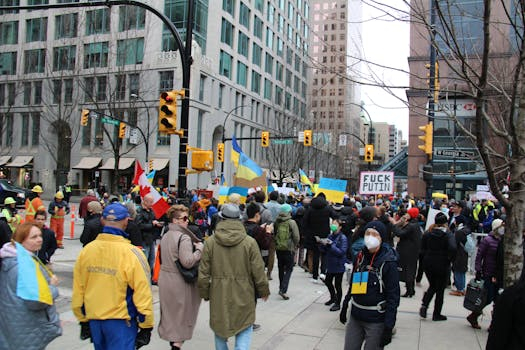Legal Impacts of Social Movements and Protests
Over the past several years, social movements and protests have become a significant aspect of modern society, especially with the rise of social media and digital activism. From civil rights movements to movements for gender equality and climate change, these collective actions aim to bring attention to pressing societal issues and bring about change. However, beyond the visible impact they have on the public discourse, social movements and protests also have legal implications that can have long-lasting effects on individuals, organizations, and even governments. In this article, we will explore the legal impacts of social movements and protests, shedding light on their importance and consequences for both the activists and those being protested against.
The Right to Protest: A Fundamental Constitutional Right
In many countries around the world, including the United States, the right to protest is protected by the constitution. This means that citizens have the legal right to express their opinions and grievances through peaceful protests without fear of retribution from the government. However, this right is not absolute, and there are limits to how protests can be carried out.
Permit Requirements and Restrictions
In most cases, protests require permits from the government to ensure that they are carried out peacefully and do not disrupt the rights of others. These permits outline the time, location, and route of the protest and may also include restrictions on the use of loudspeakers or other equipment. Failure to obtain a permit may result in the protest being shut down and potential legal repercussions for the organizers.
Additionally, protests cannot disrupt the daily operations of businesses or government institutions, and protesters must respect private property and avoid violence or destruction of property. Any violation of these restrictions can lead to legal consequences for the protesters, such as fines or even imprisonment.
The Legal Consequences of Protest-Related Violence
While the majority of protests are peaceful, incidents of violence and property damage do occur, and these can have serious legal repercussions. In some cases, violence may be perpetrated by individuals or groups who do not necessarily represent the peaceful intentions of the overall protest. However, regardless of the instigators, all participants of the protest can be held legally responsible for any damages or injuries that occur as a result of their actions. This can lead to civil lawsuits seeking compensation for damages, as well as criminal charges and potential jail time.
Protesters’ Rights and Potential Violations by Law Enforcement
On the other hand, protesters also have the right to be protected by the law while exercising their right to protest. In some cases, law enforcement officials may use excessive force or resort to unconstitutional tactics to control and disperse protests. This can result in legal action against the officers involved and their superiors, as well as compensation for the victims of these violations.
Moreover, the use of surveillance and monitoring technologies, such as facial recognition and social media monitoring, by law enforcement agencies has raised concerns over potential violations of privacy and free speech rights. Protests, particularly those related to political or social issues, can be targeted for surveillance, and the data collected can be used to identify and target individuals for prosecution or other forms of retaliation.
The Aftermath of Protests: Criminal Records and Loss of Employment
Even after a protest is over and the participants have gone home, the legal implications may continue to affect them. In some cases, individuals may be arrested and charged with crimes, such as disorderly conduct or trespassing, for their participation in a protest. If found guilty, they may face criminal records that can impact their ability to obtain jobs, housing, and financial aid.
Furthermore, employers may also choose to terminate or refuse to hire individuals based on their involvement in protests, particularly if the protest is related to their political beliefs or activism. This can be seen as a form of discrimination and may result in legal action against the employer.
In Conclusion
While social movements and protests have the potential to bring about positive change and raise awareness about critical issues, they also have legal implications that should not be taken lightly. Understanding the limits and rights involved in protests can help individuals and organizations navigate their actions to have a positive impact without facing harmful consequences. Ultimately, the legal aspects of social movements and protests highlight the need for responsible and accountable activism that is mindful of the potential legal ramifications it may have.









